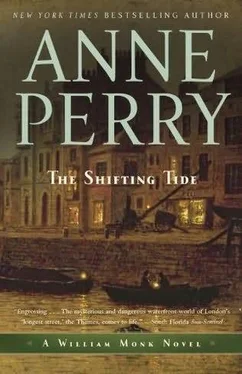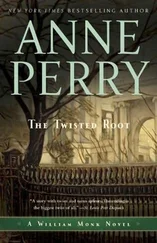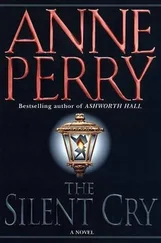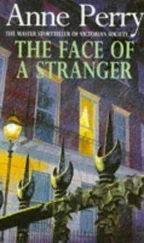Anne Perry - The Shifting Tide
Здесь есть возможность читать онлайн «Anne Perry - The Shifting Tide» весь текст электронной книги совершенно бесплатно (целиком полную версию без сокращений). В некоторых случаях можно слушать аудио, скачать через торрент в формате fb2 и присутствует краткое содержание. Жанр: Исторический детектив, на английском языке. Описание произведения, (предисловие) а так же отзывы посетителей доступны на портале библиотеки ЛибКат.
- Название:The Shifting Tide
- Автор:
- Жанр:
- Год:неизвестен
- ISBN:нет данных
- Рейтинг книги:5 / 5. Голосов: 1
-
Избранное:Добавить в избранное
- Отзывы:
-
Ваша оценка:
- 100
- 1
- 2
- 3
- 4
- 5
The Shifting Tide: краткое содержание, описание и аннотация
Предлагаем к чтению аннотацию, описание, краткое содержание или предисловие (зависит от того, что написал сам автор книги «The Shifting Tide»). Если вы не нашли необходимую информацию о книге — напишите в комментариях, мы постараемся отыскать её.
The Shifting Tide — читать онлайн бесплатно полную книгу (весь текст) целиком
Ниже представлен текст книги, разбитый по страницам. Система сохранения места последней прочитанной страницы, позволяет с удобством читать онлайн бесплатно книгу «The Shifting Tide», без необходимости каждый раз заново искать на чём Вы остановились. Поставьте закладку, и сможете в любой момент перейти на страницу, на которой закончили чтение.
Интервал:
Закладка:
“I din’t kill ’im!” Gould’s voice was hoarse with fear, and his eyes begged for belief. “I swear on my life!”
“Very appropriate,” Monk said dryly. “Since it’s with your life you’ll be paying for it.” But he felt a tug of pity he had not expected. Was it even imaginable that one of the crew had killed Hodge? A quarrel of some sort? Perhaps there had even been a traitor in the crew, and Hodge had seen him, and would have told Louvain? Had they stunned him first, and killed him after Gould had gone, perhaps because he would have told Louvain?
There was no point in asking Gould; it would be offering him an obvious avenue of escape, and naturally he would take it. And why should Monk involve himself in looking for the last shreds of truth and untangling them to save a thief?
Because the man might not be a murderer, and no one else would bother to help him.
“Someone beat his head in,” he said aloud. “If it wasn’t you, then it was somebody else on the Maude Idris .”
“I dunno!” Gould was desperate. “Yer can’t. . oh, geez!” He said nothing more.
They stood on the damp, sour earth and waited. Neither Louvain nor any of his men passed them. They had found another route to take the ivory away, swiftly and unseen, no doubt expecting Durban to come from this side.
Five minutes later Monk heard Gould gasp as if he were choking, and his breath caught in a sob. He looked around and saw Durban’s distinctive walk as he came out of the shadow of the building ahead, Sergeant Orme and a constable behind him.
“Go with him,” Monk said quietly to Gould. “I’ll do what I can.”
“Good day, Mr. Monk,” Durban said curiously, stopping a couple of yards away. “What are you doing here?”
“Stolen goods,” Monk replied. “One very handsome ivory tusk, but the point is that the night watchman on the Maude Idris was killed in the theft.”
Durban’s face was comical with understanding and skepticism. “That why they took only one tusk, is it?”
Monk knew without question that Durban did not believe it. He knew exactly what Monk had done. “I imagine so,” Monk said smoothly. “Maybe there was a bit of double-crossing going on. Gould says he didn’t kill Hodge, but somebody did. I’ll show you where the tusk is.”
Durban signaled for his man to take Gould, who let out a cry and swiveled to look at Monk, and was jerked sharply to face forward as manacles were put on his wrists.
Monk turned and led Durban back into the far building, going slowly, partly because he was uncertain of the way, but mostly because he wanted to be sure that Louvain had had sufficient time to move all the tusks and leave no trace for Durban to find. It also crossed his mind to wonder if now that he had his ivory back he would cheat on the payment, but Monk refused to dwell on that. If Louvain did, then Monk would open up the Hodge murder case in such a way that Durban would plague Louvain until he’d wish he had not paid Monk to retrieve the ivory in the beginning. But even as he thought that, he knew what a dangerous thing it would be to do. It would be a last resort, only to be adopted in order to save his own reputation; not for the money, but for all future work.
They were inside the long corridor again, and the gloom closed in on them. Monk walked slowly, picking his way by touch as well as sight, stepping carefully to avoid the rotted boards, the refuse, and the weeds which had grown up through the floor and died, their stems slimy.
He found the place where he had left the one tusk, recognizing it by the newly broken wood. He pointed to it, and allowed Durban to dislodge the ivory and pull it out.
“I see,” Durban said expressionlessly. “So who does it belong to then, when we’ve finished with it? I assume he’s going to press charges, apart from the murder of the watchman?”
“Clement Louvain,” Monk replied. He wished he could be more open with Durban. Every lie scraped at him like an abrasion to the skin, but he had left himself no room to maneuver.
At Durban’s instruction, Sergeant Orme hoisted the tusk onto his shoulder, and Durban turned to walk back again. Monk followed him, wanting to say something, anything to let Durban understand, and knowing he could not.
He found Louvain in his office after dark that evening. The room was warm. A fire was burning briskly in the grate under the ornate mantel, the light of the flames dancing on the polished wood of the desk. Louvain was standing by the window with his back to the somber view of the river. It was too dark to see anything but the yellow eyes of other windows and the riding lights of ships at anchor.
He was smiling. He had a decanter of brandy on the small table-and two glasses out, polished to burn like crystals in the reflected fire. A small leather purse sat beside them, its soft fabric distorted out of shape by the weight of coins inside.
“Sit down,” he invited as soon as Monk had closed the door. “Have some brandy. You’ve done well, Monk. I admit, I had doubts at times; I thought you weren’t up to it. But this is excellent. I have my ivory back, bar one tusk for evidence.” He nodded, smiling, and there was no curb or evasion in it. “You couldn’t have done better. If I get another problem I’ll send for you. As it is, I’ll recommend you to everyone I like.” He smiled, showing his teeth. “And I’ll hope my enemies never find you.” He poured a generous brandy for Monk and passed it to him, then one for himself. He raised the glass. “To your continued prosperity-and mine!” He drank with relish. “There’s an extra ten guineas in the purse for you. I like you, Monk. You’re a man like myself.”
It was a generous compliment, and honest.
“Thank you.” Monk picked up the purse and put it in his pocket. Quite apart from the money in it, it was a beautiful piece of leather. It was a generous gesture. He picked up his brandy and took a mouthful. It was exquisite, old, mellow, and full of warmth.
EIGHT
Squeaky Robinson staggered into the kitchen at Portpool Lane and heaved two baskets of shopping onto the table. His fingers were still bent from the weight of them.
“ ’ave yer got any idea ’ow ’eavy that lot is?” he demanded, looking at Hester indignantly.
“Of course I have,” she replied, barely turning from the stove, where she was straining beef tea. “I usually carry it myself. I just haven’t had time to go out lately. Unpack it, will you? And put everything away.”
“I dunno where it goes!” he protested.
“Then this is an excellent time to learn,” she told him. “Unless you’d rather do something else? Like laundry, or scrubbing the floor? Or we could always do with more water. We seem to be using a great deal at the moment.”
“You’re a terrible ’ard woman!” he grumbled, picking the items out of the baskets one by one.
Claudine Burroughs came in from the laundry, her face pinched with distaste at the smell, her sleeves rolled up above the elbows, and her hands and lower arms red.
“I have none of that stuff-potash,” she said to Hester. “I can’t work without supplies.”
“I got some,” Squeaky said cheerfully. “ ’ere.” He pointed to the bag on the floor. “I’ll take it down fer yer. We’re gonna ’ave ter use a little less o’ all this, least until we get some more money. I dunno where folks’ ’earts is anymore. ’Ard, they are. ’Ard like flint. Come on, missus, I’ll give yer an ’and.”
Claudine looked at him in disbelief. She drew in her breath to rebuff him for his familiarity, but he was impervious to it. He picked up the large bag of potash, lifting it with some effort, although he had carried it all the way from the next street with greater ease. Claudine let out her breath again, and with as big an effort as his, she thanked him and followed him to the laundry.
Читать дальшеИнтервал:
Закладка:
Похожие книги на «The Shifting Tide»
Представляем Вашему вниманию похожие книги на «The Shifting Tide» списком для выбора. Мы отобрали схожую по названию и смыслу литературу в надежде предоставить читателям больше вариантов отыскать новые, интересные, ещё непрочитанные произведения.
Обсуждение, отзывы о книге «The Shifting Tide» и просто собственные мнения читателей. Оставьте ваши комментарии, напишите, что Вы думаете о произведении, его смысле или главных героях. Укажите что конкретно понравилось, а что нет, и почему Вы так считаете.












